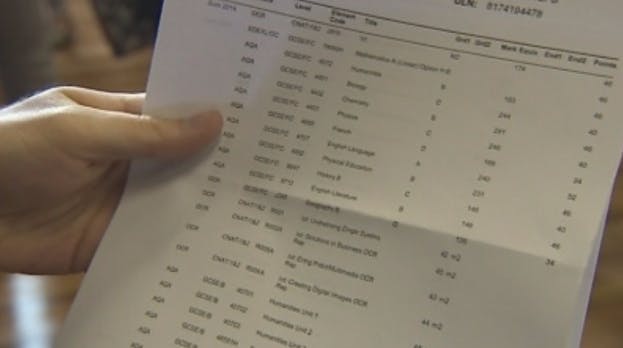Supporting students with dyslexia in an increasingly tough GCSE playing field
This week’s guest blog comes from Malcolm Litten, a member of the British Dyslexia Association New Technologies Committee. Malcolm continues to teach English to individuals who experience literacy difficulties, having enjoyed over 40 years as an English teacher. He spent over half of that time working with pupils affected by dyslexia. Here, Malcolm discusses the latest set of GCSE results and what the implications could be for students with dyslexia.
A new set of GCSE results has just been announced and among the headlines you may have read was the depressing fact that GCSE English pass rates at C grade or above have fallen. The AQA board’s statistics make stark reading: in 2015 71.2% got a C grade or better; in 2016 that figure dropped to 62%!
While we all know pass rates are manipulated, rather than represent the natural fluctuations that might occur year on year, there are other factors this year. Any pupil who failed to reach the magic C level last year has been required to re-enter this year. ‘Pass’ rates for them are predictably much lower: over all subjects less than 40% of retakes achieve the C grade.
2017 and beyond
The prospects for 2017 look even worse. One third of GCSE candidates took their English exam through the Cambridge iGCSE system this year. This is because it is a much better exam as well as being much more user-friendly for candidates. However, schools will effectively be prevented from using this exam next year, as government statistics will no longer recognise this version of English at GCSE. So if they continued to take this exam, it would look as if a school’s pupils had not achieved any grade in English.

The required GCSE English exam has been made more demanding in ways that almost look deliberately designed to make the achievement of the magic C grade near-impossible for dyslexics. (Though next year it will be expressed as a number – a grade 4 will be the new essential ‘pass’ to progress to an apprenticeship, A levels or other higher level courses.) As well as oral skills not being included, the assessment will be exclusively through an exam and 20% of the final grade will be for spelling, punctuation and grammar.
Supporting learners with dyslexia
Sorry if I have succeeded in depressing you so far! The point of outlining this future is to emphasise as strongly as possible the importance of anyone affected by dyslexia being supported in the best possible way. That unquestionably includes providing access to appropriate assistive technology.
Not everyone is aware that this technology can be used in GCSE exams if an assessment proves the individual falls outside the normal range of attainment in reading or writing. (This is usually reported in an assessment as a standardised score that falls below 85.)
Assistive Technology for exams
There is clear evidence that schools are often failing their dyslexic candidates by not providing the necessary access to assistive technology including dyslexia software for children. Use of the technology has to be part of a candidate’s “normal way of working” in school in order for them to be allowed to use it in an exam. All this actually means is that the technology is used for some particular purpose. It does not mean the technology is the principal way in which the individual reads or writes.
Text-to-speech software can be used by appropriately assessed candidates in questions designed to test their reading skills. Unlike a human reader, who will inevitably interpret text, a computer simply accurately decodes so is not deemed to give unfair help. JCQ regulations describe a candidate using text-to-speech as working “independently.”
This is one of the great virtues of assistive technology. It restores the user’s sense of working independently and thus helps to build self-confidence and self-belief.
In the same way, speech recognition software frees a candidate from dependence on a scribe. While it is a more demanding piece of software, requiring a skilled trainer, its impact can be transformative.
If we are not to see an increasing proportion of dyslexic 16-year-olds condemned as unsuitable for most forms of further education, this vital form of support needs to become the routine provision in schools long before GCSE arrives. As success can only boost a school’s performance and reputation, it is to be hoped many more of them will wake up to the importance of providing assistive technology. It should be viewed as the normal thing schools do, not the exception.
